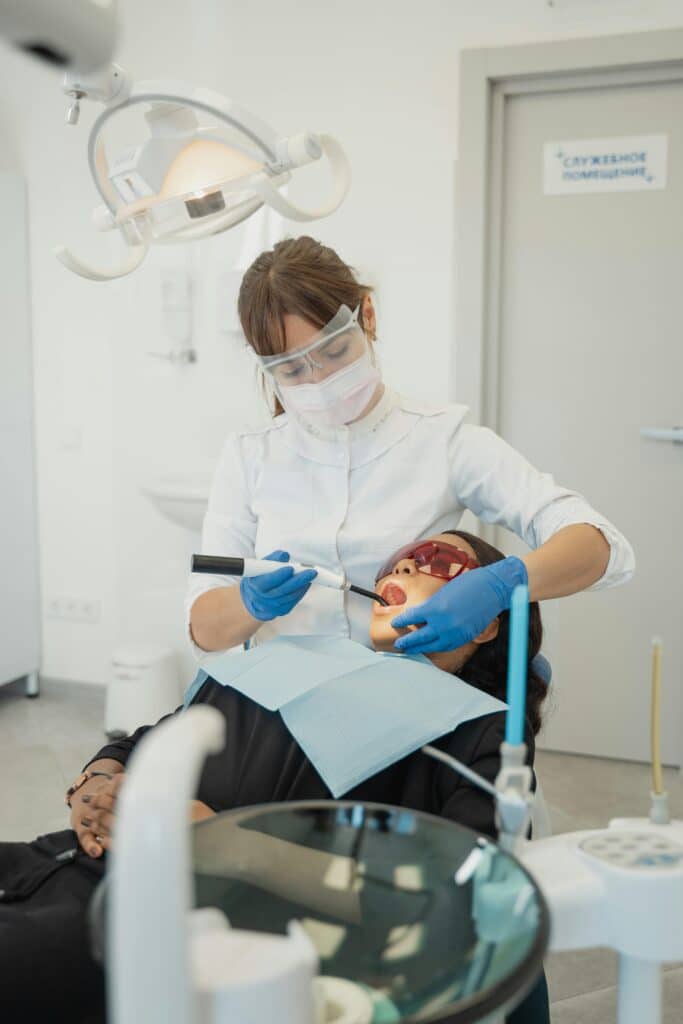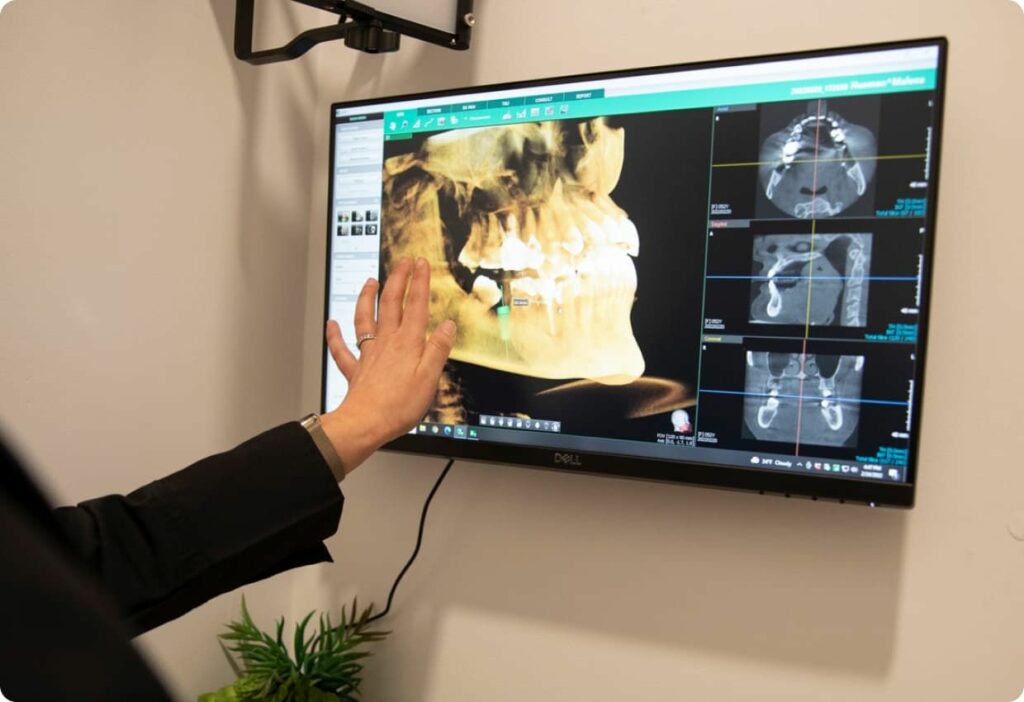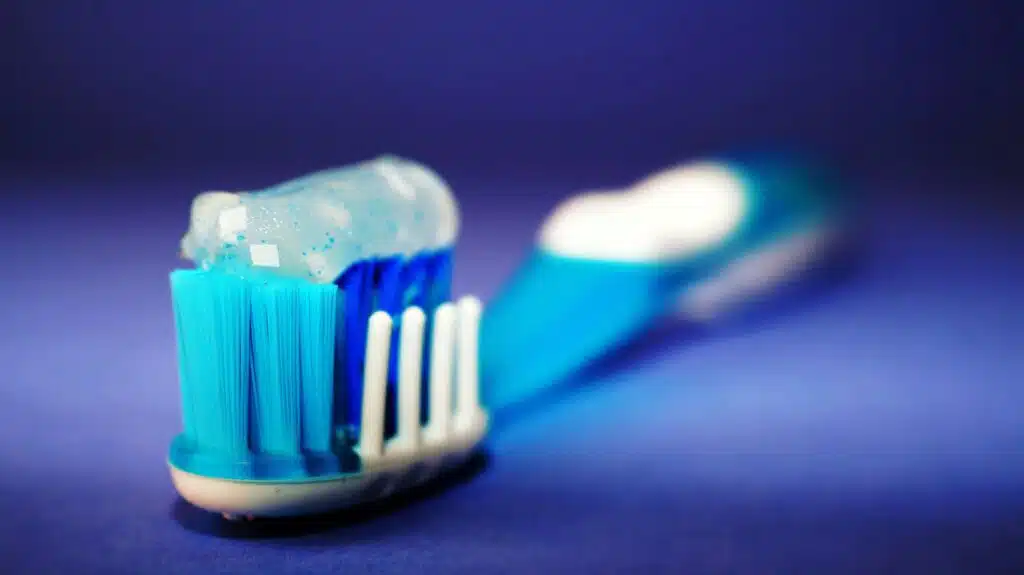Tooth sensitivity occurs when the underlying layer of the tooth, called dentin, becomes exposed. Dentin contains tiny tubules that lead to the tooth’s nerve, making it highly sensitive to temperature changes and external stimuli. Here are some of the most common causes:

The enamel is the hard outer layer of your teeth that protects the dentin underneath. Over time, acidic foods, aggressive brushing, and grinding can wear down this protective layer, leading to increased sensitivity. Solution: Preventative Dentistry
Gum disease or improper brushing techniques can cause gums to recede, exposing the tooth’s root. Since roots lack enamel protection, they are more prone to sensitivity. Solution: Gingival Contouring
When cavities develop, they create small openings in the enamel, exposing the dentin and causing discomfort when consuming hot, cold, or sugary foods. Solution: Restorative Dentistry
A damaged tooth can expose the nerves inside, leading to sudden, sharp pain when pressure is applied or when consuming certain foods and beverages. Chipped Tooth? Why You Need to See a Dentist for Help Soon
Grinding your teeth at night or clenching your jaw due to stress can gradually wear down enamel, making your teeth more sensitive over time. Check: Preventative Dentistry
Many over-the-counter whitening products contain strong bleaching agents that can weaken the enamel. Additionally, some toothpastes designed for whitening contain abrasive ingredients that strip away enamel, increasing sensitivity. Check Cosmetic Dentistry

Tooth sensitivity manifests in various ways, but the most common symptoms include:
If you experience persistent or worsening symptoms, it’s essential to visit a dentist to identify the underlying cause and get appropriate treatment.
Fortunately, there are several ways to manage and even eliminate tooth sensitivity. Treatment options vary depending on the cause and severity of the condition. Here’s what you can do:
Specially formulated desensitizing toothpastes contain compounds like potassium nitrate or stannous fluoride, which help block the pathways to the nerves, reducing sensitivity over time. Regular use can make a significant difference. Check: Preventative Dentistry: How You Can Help Your Teeth at Home

Brushing too hard or using a toothbrush with hard bristles can wear down enamel and contribute to gum recession. Instead:

Fluoride strengthens enamel and reduces the transmission of sensations to the nerve. Your dentist may recommend fluoride gels, varnishes, or prescription fluoride toothpaste to help reduce sensitivity.
For severe cases, dental professionals may apply sealants to cover exposed dentin, acting as a protective barrier to reduce discomfort.
If gum recession is the cause, a gum graft procedure can cover exposed roots, reducing sensitivity and protecting your teeth from further damage. Gingival Contouring

If bruxism is contributing to your sensitivity, a custom-fitted night guard can prevent further enamel wear and alleviate pressure on your teeth.
Acidic foods like citrus fruits, soda, wine, and coffee can erode enamel. Reducing consumption and rinsing your mouth with water after eating these items can help minimize damage.
If at-home remedies aren’t enough, your dentist may recommend:
Root Canal: In severe cases, where pain persists despite treatment, a root canal may be necessary to remove the affected nerve.
Bonding: Applying a resin material over exposed dentin.
Crowns or Inlays: These restorative treatments protect damaged or decayed teeth.

While treating tooth sensitivity is crucial, prevention is always the best approach. Here are some tips to protect your teeth:
For those deciding between composite and porcelain veneers, it’s helpful to understand the differences. Porcelain veneers are more durable and stain-resistant, making them ideal for clients seeking a long-term solution. However, they also come at a higher cost and require a more involved application process.
Composite veneers, on the other hand, offer a quicker and more affordable option. They’re ideal for clients seeking a temporary or semi-permanent solution that provides immediate results. Additionally, composite veneers can be altered and adjusted as needed, which is useful for those who may want to update their smile over time.
Tooth sensitivity can be a frustrating and painful issue, but it is manageable with the right care. By understanding the causes, symptoms, and available treatments, you can take proactive steps to protect your teeth and enjoy a pain-free smile. If sensitivity is disrupting your daily life, schedule a consultation with your dentist to find the best solution tailored to your needs.
Don’t let tooth sensitivity hold you back from enjoying your favorite foods and drinks. Contact us today to learn more about personalized treatment options!


Looking for a family dentist in Hanover or Littlestown? We recommend Family Smiles Dentistry!